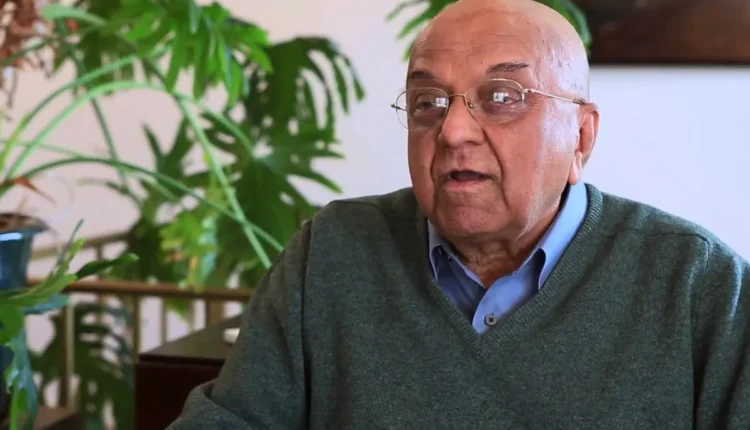Rangaswamy Srinivasan: In the realm of scientific innovation, there are those whose contributions transcend mere advancements, leaving an indelible mark on the course of history. Rangaswamy Srinivasan, a name synonymous with groundbreaking achievements in physical chemistry and medical technology, stands as a testament to the power of human ingenuity and perseverance.
From humble beginnings in Madras, India, to the hallowed halls of IBM Research, Srinivasan’s journey is a narrative of unwavering dedication, unwavering pursuit of knowledge, and unparalleled impact.
Rangaswamy Srinivasan’s Early Years and Education
Born on February 28, 1929, in Madras, India, Rangaswamy Srinivasan exhibited an early passion for science and inquiry. His academic pursuits led him to the University of Madras, where he earned both bachelor’s and master’s degrees in science, laying the foundation for a remarkable career ahead.
In 1953, fueled by a desire to further his studies, Rangaswamy Srinivasan embarked on a journey to the United States, where he pursued a doctorate in physical chemistry at the prestigious University of Southern California.
Under the mentorship of renowned chemical kineticist Sidney W. Benson, Srinivasan delved into the intricate realms of protein chemistry, honing his skills and expanding the boundaries of scientific understanding.
Pioneering Research at IBM
Rangaswamy Srinivasan’s illustrious career truly took flight upon joining IBM’s T. J. Watson Research Center in Yorktown Heights, New York, in 1961.
As a member of the research staff, he immersed himself in the study of ultraviolet light and its effects on organic matter, laying the groundwork for groundbreaking discoveries yet to come. It was here, amidst the cutting-edge facilities and collaborative spirit of IBM, that Srinivasan’s innovative spirit flourished.
In 1981, Rangaswamy Srinivasan and his team made a pivotal breakthrough that would forever alter the landscape of medical science. By harnessing the power of ultraviolet excimer lasers, they developed a revolutionary technique known as Ablative Photodecomposition (APD).
Through meticulous experimentation, including a now-famous demonstration involving a Thanksgiving turkey, Srinivasan showcased the remarkable precision and potential of APD in etching living tissue without causing thermal damage—a feat previously deemed impossible.
Revolutionizing Eye Surgery with LASIK
The transformative potential of APD soon captured the attention of ophthalmic surgeon Stephen Trokel, who saw its promise in the realm of vision correction. Collaborating with Trokel and fellow researcher Bodil Braren, Srinivasan embarked on a journey to refine and perfect the technique for use in corneal surgery.
The culmination of their efforts gave rise to LASIK eye surgery, a groundbreaking procedure that offers hope and clarity to millions worldwide afflicted by refractive errors such as myopia, hyperopia, and astigmatism.
Honors and Accolades
Throughout his illustrious career, Rangaswamy Srinivasan‘s contributions have been celebrated and recognized by the highest echelons of the scientific community.
From the prestigious National Medal of Technology bestowed upon him by President Obama to the Max Delbruck Prize in Biological Physics and induction into the US National Inventors Hall of Fame, Srinivasan’s accolades stand as a testament to his enduring legacy and profound impact on society.
Also Read :-Ramesh Raskar: Visionary Technologist and Humanitarian Leader

